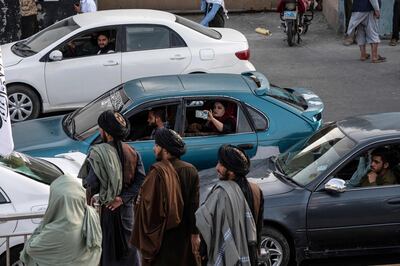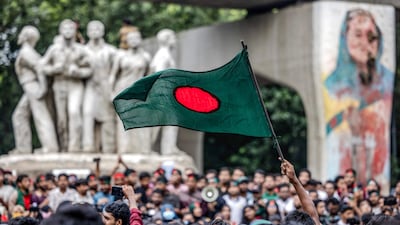Where can a spurned leader go? This was a serious concern for Bangladeshi prime minister Sheikh Hasina when outraged mobs forced her ejection from office. The military whisked her to safety in India.
In nearby countries, Pakistani president Pervez Musharraf in 2016, Afghan president Ashraf Ghani in 2022 and Sri Lankan president Gotabaya Rajapaksa shared this fate.
“Uneasy lies the head that wears the crown” has been true for ages. The 20th century’s notable exiles included Ottoman Sultan Mehmed VI, Greek King Constantine I, German Emperor Wilhelm II, Ethiopian Emperor Haile Selassie, and Shah Reza Pahlavi of Iran.
Their elected successors were no more secure. At least 60 presidents and prime ministers have been cast out of their homelands in the decades since. Exile to a safe foreign haven is a common, and privileged, retirement route for the leaders of troubled states.
This could be justified on humanitarian grounds; imperilled leaders are entitled to seek survival. As when Gen Musharraf sought care in Dubai for a serious medical condition that had no provision in Pakistan. Mr Ghani was ultimately just another of the millions of Afghans fleeing the Taliban.


But are those given shelter being helped to avoid accountability for alleged crimes? That was the claim made by his critics when Uganda's Idi Amin got sanctuary in Saudi Arabia in 1979. The justification, however, in such cases is that removing toxic actors allows resetting a nation caught up in intractable violence.
When to run is a tricky judgment for an unpopular leader fearing vengeance from aggrieved opponents. Nicolae Ceausescu, Romania’s president, left it too late. Caught fleeing a 1989 uprising, he was hastily convicted and executed. Was his show trial just? Never mind, say those applauding this as necessary to shift Romania’s trajectory towards democracy.
When Muammar Qaddafi fell, he was badly beaten and killed in 2011. Elsewhere, Iraq’s notorious president Saddam Hussein also did not flee the country, and was tried and hanged in 2006.
Did speedy executive justice – including capital punishment – achieve stability and peace? Not yet in Libya and Iraq, and Uganda still has governance challenges.
Mengistu Haile Mariam, the Ethiopian head of state who authored an extensive campaign of “red terror”, got refuge in Zimbabwe in 1991. Courts under Mr Mengistu’s successor sentenced him in his absence to death for genocide. If the intent was to act firmly to break Ethiopia’s cycles of violence, it failed, as the nation remains mired in insecurity.
What are countries thinking when granting asylum to a ruler fallen from grace?
There could be cultural and personal connections as when, in 2000, Japan sheltered Peruvian president Alberto Fujimori, who was accused of corruption and human rights abuses. Colonial links and obligations also play a role. Many overturned have found comfort in the UK, France or Belgium. The Philippines president Ferdinand Marcos Sr got lifted by the US Air Force to Hawaii allegedly along with a billion dollars in currency, gold and jewels to ease the inconvenience of exile.
But it is creatively finessed realpolitik that dictates high-level asylum decisions. As a UK government official dealing with Sierra Leone in the 1990s, I was involved in encouraging the military head of state Valentine Strasser to stay away when he was ousted in yet another coup. A fellowship to study at the University of Warwick was duly engineered through the UN to allow a face-saving exit without granting him formal asylum, which civil society was strongly against.
When activists tried to prosecute despotic Haitian president “Baby Doc” Duvalier who decamped to France in 1986, the authorities claimed not to know where he was as the Schengen agreement had abolished internal EU border controls. But the neat corollary was that Mr Duvalier could not get political asylum either under the EU’s policies against impunity for egregious human rights violations.
An exiled leader is not necessarily permanently undone. It was in his Paris exile that Ayatollah Ruhollah Khomeini plotted the 1979 revolution returning triumphantly to Iran as its supreme leader.
Ivorian president Laurent Gbagbo is a fascinating case. Losing a civil war, he was sent to the International Criminal Court in 2011 for crimes against humanity. Acquitted after eight years in custody, he recuperated in Belgium before returning home. He plans to contest next year’s presidential elections.
Burkinabe president Blaise Compaore was handed a life sentence in absentia for murdering his predecessor and spent eight years in asylum in Ivory Coast. But a military coup in 2022 allowed Compaore to return.
Of course, exiles can pose serious headaches for hosts. They require costly security against manifold enemies and at times risk furious demonstrations against their misdeeds that also bring embarrassing publicity for the host.
A political twist comes when diasporas of political and humanitarian refugees are themselves divided for and against a former leader. This would perhaps be a consideration for the UK, with its large Bangladeshi diaspora, if Sheikh Hasina were to apply for asylum there.
It’s trickier when exiled leaders plot against their successors out of revenge or in hope to regain power. This causes ongoing instability, and strains diplomatic relations between hosting and affected nations.
Hosts have their own calculations of interest, too. For those involved in regime change, as the US was in Latin America, it may be handy to have an exiled leader readily available to step back in. Cuban strongman Fulgencio Batista was overthrown in 1959, but he found a good home in Portugal in case the day should come when Fidel Castro's revolution could be reversed.
There was similar calculation around Afghan king Zahir Shah’s long exile in Rome. Could his royal status unite Afghanistan’s quarrelsome factions for peace? The Dalai Lama of Tibet is exiled in India from where he inspires his followers around the world. This suits western interests, much as it troubles China.
Ukraine’s Maidan Revolution drove president Viktor Yanukovych to exile in Russia in 2014. For the Kremlin, he could have utility to legitimise its desired outcome from the Ukraine war.
But using the “golden parachute” of exile has become harder as the world has moved from impunity into accountability. This was signalled by the 1998 arrest of former Chilean dictator Augusto Pinochet in London because of a Spanish warrant. Legal innovations, such as the rejection of the notion of sovereign immunity and universal jurisdiction for crimes against humanity, have meant that justice is going increasingly global.
That was helped by the creation of international tribunals and courts for former Yugoslavia (1993), Rwanda (1994), Sierra Leone (2002) and Cambodia (2004). The ICC in 2002 consolidated the sea change.
Liberian strongman Charles Taylor had originally got asylum in Nigeria, but that failed to protect against extradition, trial and a 50-year prison sentence in 2012 for what the judge called the “most heinous and brutal crimes in recorded human history”. Thus, the hiding places for leaders committing egregious abuses have shrunk.
But that brings another challenge. With exile no longer guaranteeing safety, where does an embattled strongman go, even if he is somehow cajoled to leave?
Has the genocide case at the International Court of Justice put Myanmar's generals into an existentialist bind that perpetuates the violence? Similar judicial proceedings involving both ICC and ICJ against the leaders of Israel and Gaza must influence war-and-peace dynamics there.
Strengthened international provisions for protecting citizens against egregious abuses through challenging the impunity of leaders is good. But it would be perverse if the remedy somehow prolonged underlying conflicts and associated suffering. Therefore, it is worth retaining asylum possibilities for disgraced leaders as a pragmatic option for crisis resolution. But how to do that without compromising the principles of justice remains a dilemma.


